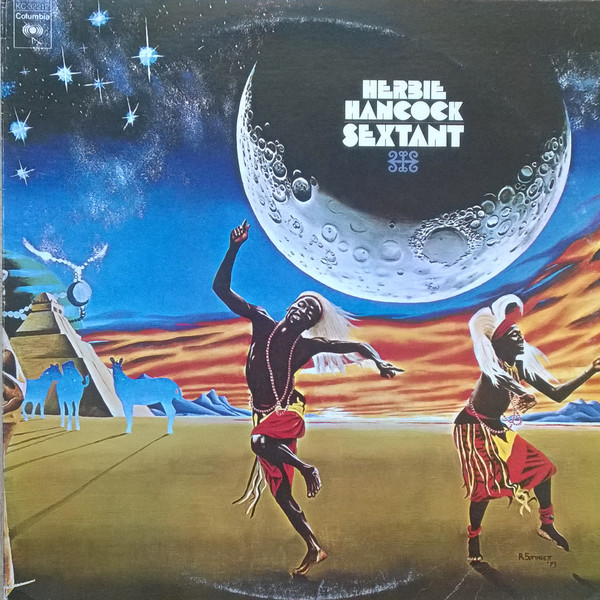 Herbie Hancock recorded 31 albums during his stint with Columbia Records & CBS/Sony Japan from 1972 to 1988. I know this because it’s on the copy of the back of the box set, Herbie Hancock: The Complete Columbia Album Collection 1972-1988. I picked up the set as an impulse buy while record shopping in NYC a few years ago, in a jazz shop featuring a vast selection that felt amazing and intimidating simultaneously. Amazing because it contained an enticing wealth of records difficult to come by elsewhere, and intimidating to a jazz novice like me, unsure what treasures to gather from the dragon pile of jazz riches.
Herbie Hancock recorded 31 albums during his stint with Columbia Records & CBS/Sony Japan from 1972 to 1988. I know this because it’s on the copy of the back of the box set, Herbie Hancock: The Complete Columbia Album Collection 1972-1988. I picked up the set as an impulse buy while record shopping in NYC a few years ago, in a jazz shop featuring a vast selection that felt amazing and intimidating simultaneously. Amazing because it contained an enticing wealth of records difficult to come by elsewhere, and intimidating to a jazz novice like me, unsure what treasures to gather from the dragon pile of jazz riches.
Reviewing Herbie Hancock: The Complete Columbia Album Collection 1972-1988
Hancock’s complete Columbia output was an easy choice. Though I’m not well-versed in jazz, I’d already spent time with some of his albums and wanted to go deeper. So I nabbed this one along with several other albums at the store and had them shipped back to me, but it’s been sitting patiently and waiting for me to muster the courage to dive in and try to make my way through all 31 albums. Now it’s time. This is the first post in a series, one for each album on the Complete collection. (It contains 34 CDs but three albums in the series span two discs.)
Full disclosure: my ear is primarily attuned to genres like classic rock, 80s and 90s alternative, 50s and 60s oldies, and so forth. Sadly, my exposure to and interest in jazz is much more recent, so I have an uncultured palate when it comes to jazz and a lot of other music.
My assumption, when a work of music outside my comfort zone doesn’t grab me, is that the failure is mine and not that of the artist or the music itself. Writing about music is one of my ways of trying to think about it carefully, rather than trying to pass judgment.
Sextant (1973)
Sextant is the first album in Hancock’s Columbia adventures, and also dovetails with some of his early work with electronics and synthesizers. The album consists of three tracks, “Rain Dance,” “Hidden Shadows,” and “Hornets.”
“Rain Dance” strikes me as the kind of noodling Pink Floyd were doing while finding their way in the post-Syd era. It’s got a beep-boop-y vibe and never quite resolves into what seems like a real composition.
The next track, “Hidden Shadows” is more approachable and invites repeat listening. It’s still dissonant in sections, but overall captures my attention and has strong moments where I can get wrapped up in the music before getting jammed up by an improv gone into the weeds.
What would have been side two on LP is consumed entirely by “Hornets,” which splits the difference between “Shadows” and “Rain Dance.” Nearly 20 minutes long, this one is not as challenging as “Rain Dance” nor as approachable as “Hidden Shadows.” It has strong funk overtones and I can imagine that spending more time with it would unveil some hidden wonders.
Thoughts on Sextant
Whatever commercial aspirations Columbia might have had for the album, it’s hard to imagine expecting Sextant to fly off record store shelves. The songs are too long for radio play and full of dissonance. This strikes me as an album that will only work for folks deep into avant-jazz.
Notably, Hancock shook up his crew and went into the studio for the next album (Head Hunters) with only one holdover from Sextant (Bennie Maupin, who plays an impressive array of wind instruments). We’ll pick that one up in a future post.
Overall, I plan to give Sextant a few more spins, but don’t expect it to be in regular rotation.
